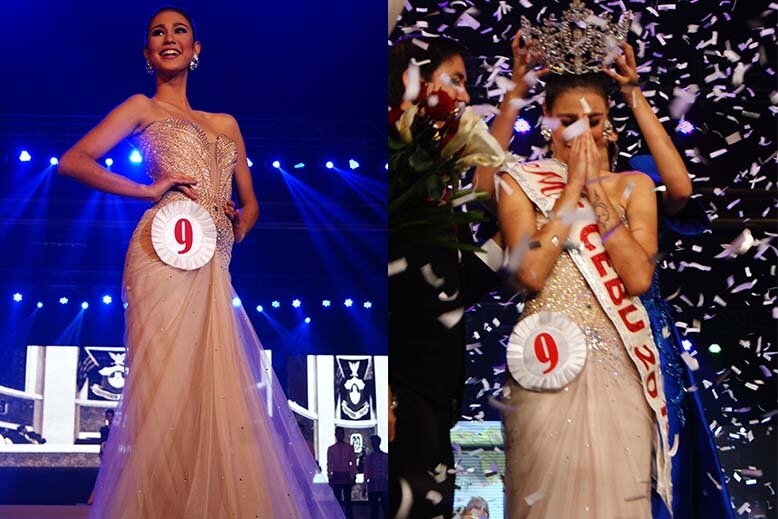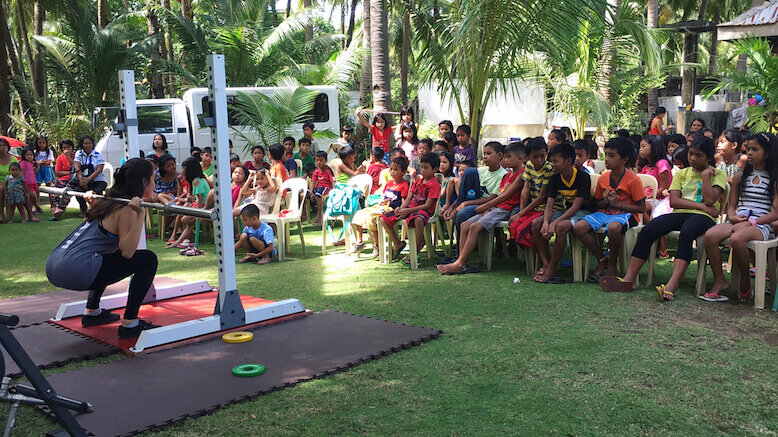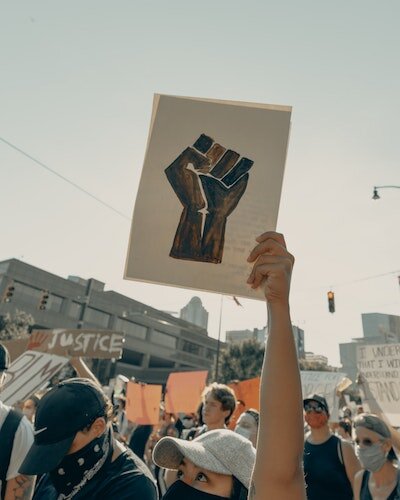The Future Is ________ series discusses what the future entails in the works and eyes of change-makers.
Our hopes are always pinned to the promise of a better tomorrow. When the generation before becomes old, tired and weary, it's always the youths — armed with boundless energy and unadulterated optimism — who will be depended upon to reshape the world we live in, hopefully, for the better. Today, we don't even have to wait for decades to see change happen. Generation Z, the next generation to come of age, has already been very vocal about the change they want to see.
This is a generation that demands inclusivity and calls for equality, equipped with the power of technology that makes it hard for others to ignore their plea. This is a generation with a century's worth of inspirational figures to look up to in recent times: from the dauntless suffragettes to Martin Luther King, Jr. to Malala Yousafzai. Gen Z is indeed a force to be reckoned with. Let's get to know them.
Are Gen Zs tech natives?

You could say that Gen Z's sibling is the internet, and the two grew up together, side by side.
It depends on who you ask, but the most accepted definition of Generation Z refers to people who were born between 1995 and 2015. Many things happened in 1995, and arguably one of the most momentous ones is the birth of the internet's accessibility. Java Script was introduced, the then-groundbreaking Microsoft Windows 95 was released, and the first version of Internet Explorer — the mother of all internet browsers — was launched. In a way, you could say that Gen Z's sibling is the internet, and the two grew up together, side by side.
So it comes as no surprise to label this generation as tech natives. "Technology assisted me with creating my logos, marketing collaterals like banners and posters, event pages and keeping everyone in swift contact. Social media connected me to like-minded volunteers and [allowed me to] communicate with the media, invite speakers and advertise," shared Raine Baljak, a social and environmental activist who also happens to be a crowned beauty queen in the Philippines. With the help of technology, she successfully organised major advocacy events such as #ProjectCORAL, the first free-diving coral clean-up initiative in the Philippines (as recognised by the National Clean-Up Day Coalition in 2018).

Raine Baljak during her coronation as Miss Cebu.
She was also able to connect with key figures like Filipino Olympic weightlifter Hidilyn Diaz through a simple electronic mail. Together, they established Miss Cebu 2016’s Artemis Strength for Saving Youth (ASSY) and Boys Ultimate Test To Strength (BUTTS) in August 2017, a charity project that aims to educate children and young adult from remote locations about health, well-being and fitness.

Miss Cebu 2016 ASSY & BUTTS Workshop on Strength Training in Luyang, Carmen.
In an age where most of their lives were spent on the interweb, Gen Z activists like Raine, who has conquered the art of using technology to her advantage, have the edge. Even during the pandemic, she continues to "convert this youthful optimism productively" on her Youtube channel and website.
Technology has not just become an avenue to further the Gen Z cohort's advocacy but it has also served as their teacher. Kuala Lumpur-based photographer, Rhiannon K. who categories her work as "conceptual photography" owes her expertise to the world wide web of knowledge. "I owe it all thanks to the magical world of the internet. Without it, I probably wouldn’t have known about conceptual photography or discovered that I had a knack in photo editing," she said.
Rhiannon's latest work, “Look At You, Now Look At Me”
And it wasn't just the technical skill that she gained from spending time online, she shared that it has also broadened her horizons allowing her to be more connected and understanding about the world which added more depth to her works.
The same goes for Clare Chong, a young filmmaker in Singapore who just signed in to a big production company. "Social media is my research," she said, adding that it's always good to be in-the-know of what's happening. "I watch a lot of videos, I go through Instagram like crazy and as a young woman, I know my market. I can do stories that support that."
Are Gen Zs practical about their passion?
While the millennial cohort was differentiated by their strong drive to go after their passion, Generation Z employs a more practical approach. Yes, they also want more than money for work, but they are more likely to acknowledge and consider what is necessary to acquire financial stability in order to achieve their dreams. Incidentally, this generation is also found to be very financially-conscious and crave learnings on how to manage money.
For Raine, money is a tool for making your dreams and plans come true and not the end goal. "I view money as a medium of trade. It can measure an individual’s value for the work they produce but it does not define an individual," she said and shared that her events are funded by her clients who were coached under her supervision through her business BaBeBoBs Beauty and Fitness Consultancy and through other supportive sponsors. "In return, I helped market their businesses to boost sales through my title and capacity to create content in the form of event organising, digital media marketing, design and layout, writing articles, voice-over advertisements, and consultancy for project collaborations."

Gen Zs are found to be very financially-conscious and crave learnings on how to manage money.
But the stereotype that young people don't know how to manage money well sometimes has some grain of truth. Clare admitted that she was once careless with her finances, but now she's learning about trading and investing through online classes. Through her financial and career journey, she made an observation that in modern times how you earn money can sometimes be tied to your happiness. "In older generations, I guess you work and how you earn money isn't your main source of happiness," she said. "My mom, she's a piano teacher and likes her job but ultimately to her, it's a source of income to support her family whom she loves."
Clare goes on to explain that, for her, she doesn't desire to have a family of her own and so, in a way, her work is tied to her happiness. "I admit, I think there's something strange about tying your happiness to your job and make what you're passionate about your source of income. I don't know if that raises our happiness index."
Is it a good thing or a bad thing? Rhiannon puts it perfectly: "Essentially, it’s grasping the idea that happiness is beyond money," Rhiannon said. "It is when your soul feels at peace because you’ve done something meaningful." We often talk about work-life balance in a black-and-white manner, but this generation thinks about the relationship between passion, money and happiness in a beautiful, complicated and multifaceted way. And it ultimately, they're making it work.
Are we underestimating Gen Z?
It's often a pitfall of the elders to underestimate the young simply because of the misconception of naiveness and immaturity. "I feel discriminated upon because of my age, all the time, ever since I entered the industry," Clare said. She shared that the sad thing is, she's come to normalise it. "I still don't think it's right, but I've accepted that it comes with the territory and have understood where it's coming from," she said. "I started by working as an assistant director — meaning I ran the set, planned schedules — and with a 22-year-old who's directing people who are in their 50s and 60s, egos are bound to get hurt."
So then, what does she do? "I think the most important thing is that you shouldn't appear inexperienced," she said, underlining that undeniably good work is the antidote to prejudice. Raine shared the same views: "Grit will keep you going. You cannot please everyone, but if you are clear and true about your goals, you will never lose sight of what needs to be accomplished."
Rhiannon at a Canon Malaysia event.
As for Rhiannon, it's not just about her age but she's also had to defend her new brand of digitally-made art which not all have come to appreciate. "You’ll eventually discover the right group of people who will appreciate your art. I’m very fortunate to be able to work with Canon Malaysia — having them support and acknowledge that photography is much more than just capturing images is very reassuring and a step forward for all creative photographers," she said.
But above all, complaints against this young generation isn't just about their inexperience. Gen Z has also been branded as an audience who is too politically correct and "can't take a joke". To this, Clare said: "We are just being critical about issues because we care. It's not for the want of drama or being soft and sensitive, but it's because we love our country and the world that we live in".

The Gen Zs are a generation who are very vocal about their advocacies.
Indeed, they are the generation who are very vocal about their advocacies — whether it's for the environment, social welfare or freedom of speech. A generation that calls out injustices when they see it. More or less, we can count on a world headed to a better place; one that we may not inhabit but will be part of our legacy if we let the youth thrive.
The future is female. Here's why.
Comments, questions or feedback? Email us at [email protected].








